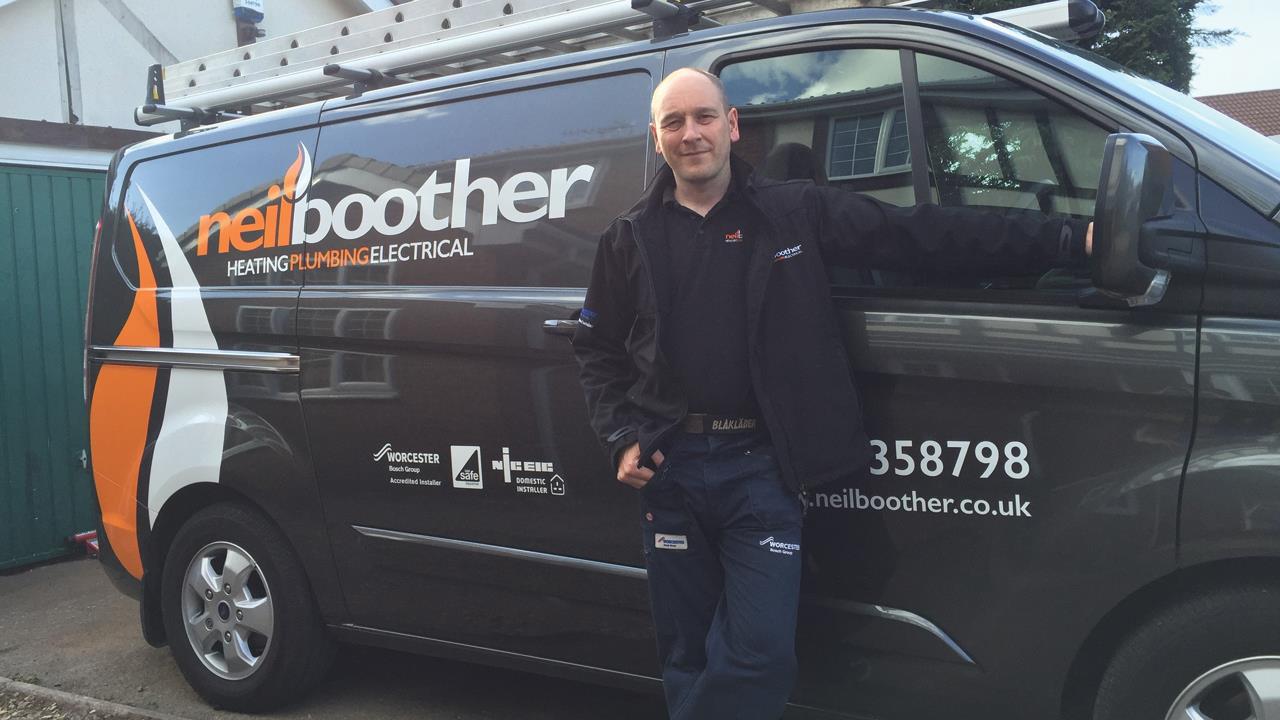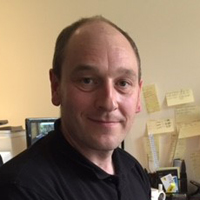


Neil Boother, owner of Neil Boother Heating, Plumbing & Electrical, reflects on the state of the industry, the importance of apprenticeships and training, and what the future might hold for plumbing and heating engineers.
I left school in 1989 and joined my father’s company, where I undertook a Joint Industry Board apprenticeship in plumbing and heating. I worked alongside my dad for about 10 years, learning my trade and honing my skills, before taking the plunge and going self-employed.
I continued to work with my dad, where I was doing the installation work and he did the maintenance side of things, before my two brothers also trained to be plumbing and heating engineers, making it a real family affair.
My dad unfortunately passed away in 2015, at which point I took a step back to rethink how I wanted to run my business. Since then I have moved away from bathroom installations to concentrate on boiler installations, servicing, and repairs. I now occupy the role that my father did before me, looking after the maintenance side of the business while my brother carries out most of the installation work.
Entering the profession
My own experience has shown me what a brilliant entry route an apprenticeship is into this rewarding career. It allows people to train in the correct way, learning practical skills from someone who has years of experience in the industry, while also gaining professional qualifications.
In fact, I believe in the value of an apprenticeship so much that I actually gave both of my brothers apprenticeships too, because I know how effective they are at preparing people for a challenging, but ultimately fulfilling, career.
I strongly believe that those of us who have benefitted from this path should do all we can to make the same option available to others following us into the plumbing and heating industry.
Working as an engineer
The best thing about working as a plumbing and heating engineer is that no two days are the same, with a host of different challenges and people to keep you on your toes.
One day might be the standard servicing of a domestic boiler; the next could be a complete overhaul of an old mill heating system. In fact, for me, the latter involved fitting a new boiler, low-loss header, and smart controls, which was a real challenge because it was unlike anything I had ever done before, but the delight of enabling the customers to be warm and have control of their system and the satisfaction of a job well done made it all worthwhile.
It is also amazing to work in an industry that is at the forefront of technology, with new products coming onto the market all the time. But this is a double-edged sword, and the rate of change in the plumbing and heating world means there are also frauds who are giving the industry a bad name. There are too many poor quality jobs carried out, which are slipping through the net and putting lives at risk, and the industry has a collective responsibility to tackle this.
We need more regulation, and the role that industry bodies such as the Chartered Institute of Plumbing & Heating Engineering (CIPHE) play in safeguarding the public is crucial.
I joined the CIPHE 20 years ago, or the Institute of Plumbing as it was known back then, as an MIP RP, and its highlighting of issues such as scalding and the need for training is something that I am very supportive of.
Continuing Professional Development (CPD) is especially important in our industry, given the rate of change in both technology and legislation. I regularly attend manufacturer training courses to keep up-to-date with the latest products, and I am also Gas Safe-registered and a NICEIC-registered electrician. Both require me to attend training courses to keep up with new regulations, and enable me to be confident that the work I carry out is safe and thorough. It is inconsistent that the same is not demanded in relation to water services.
The future of the industry
The pace at which technology is developing makes it difficult to predict where we will be in 20, 10, or even five years’ time. Certainly, there is already more demand for environmental control in homes, and keeping up with the AI systems involved with this will be a future challenge.
Energy efficiency is clearly going to be high on the agenda, with any number of possibilities moving forwards in terms of how we heat our properties.
I think the most important thing for plumbing and heating engineers to do is to be flexible, engage with CPD, and stay
up to date with all changes that affect our industry.
If you'd like to keep up-to-date with the latest developments in the heating and plumbing industry, why not subscribe to our weekly newsletters? Just click the button below and you can ensure all the latest industry news and new product information lands in your inbox every week.